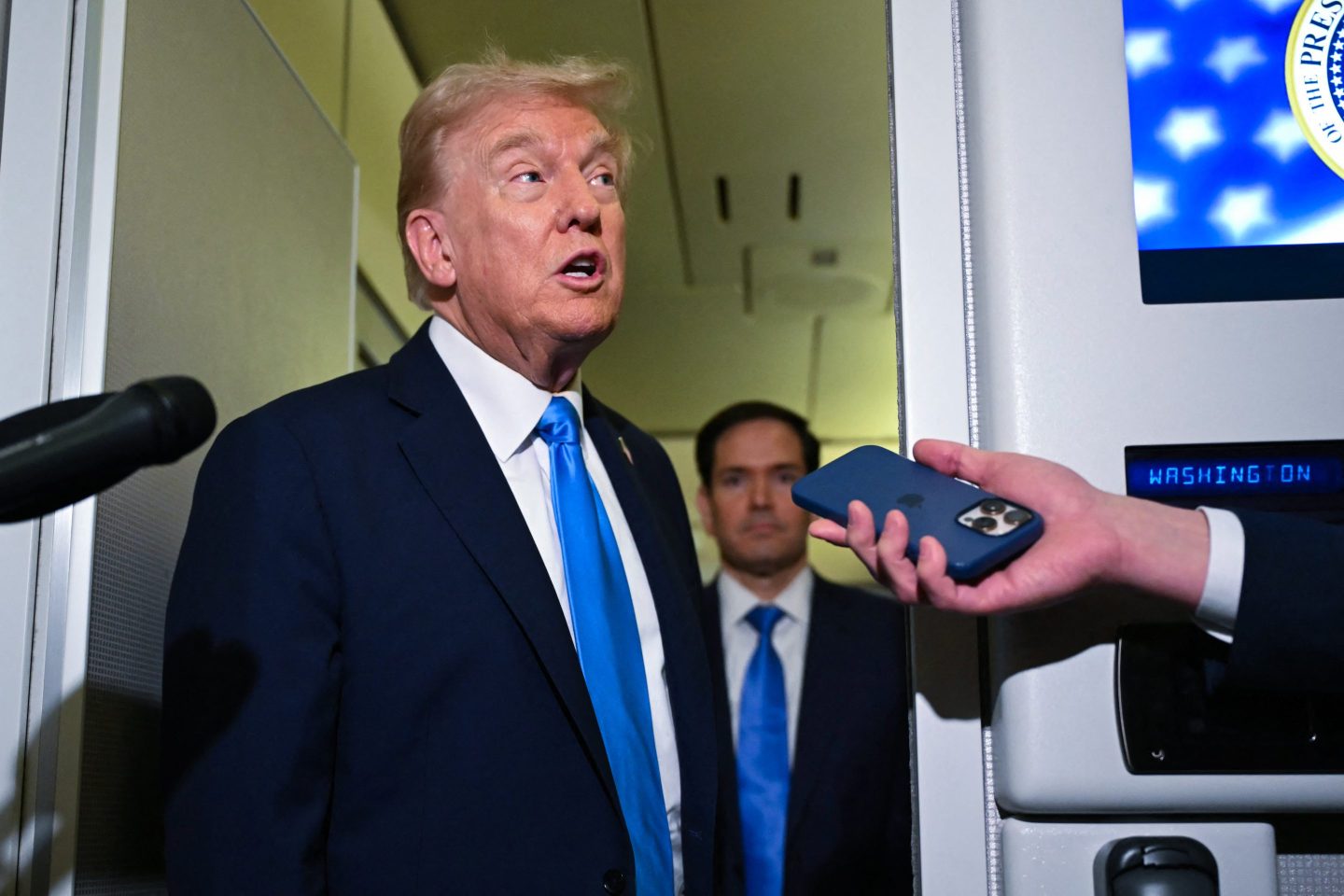US President Donald Trump hailed Javier Milei after the Argentine president’s political party staged a comeback victory in Sunday’s midterm elections, vindicating the extraordinary financial backing the US arranged for its South American ally.
“That was a big win,” Trump told reporters on Air Force One Monday, referring to Milei’s party winning the most votes in an election seen as an assessment of his aggressive moves to revamp Argentina’s long-beleaguered economy. “Not only did he win, he won by a lot,” Trump said.
Trump’s backing for his fellow conservative was part of a broader push to secure a political shift across Latin America, with elections pending in a number of nations. Treasury Secretary Scott Bessent oversaw a series of unorthodox steps aimed at stabilizing Argentine assets after the peso had plunged in the wake of Milei’s party suffering a stinging defeat in a key provincial ballot last month.
That bet, involving well over $1 billion in peso purchases according to market estimates, appears to have paid off in spades. Should the Argentine currency in Monday’s trading session climb at a similar magnitude to that seen in cryptocurrency markets in the wake of the election, the US could be on course for hundreds of millions of dollars in gains.
“That election made a lot of money for the United States,” Trump said Monday. “The bonds have gone up,” he said. “The whole debt rating has gone up.”
It was a bet on a nation that had defaulted on its financial obligations repeatedly in recent decades, and one that owes $55 billion to the IMF.
Bessent, who specialized in foreign exchange in a decades-long hedge fund career, organized a $20 billion foreign-exchange swap with Argentina’s central bank earlier this month — an unusual structure that bypassed the US Federal Reserve, which is typically the lead party in such arrangements. He also had been working on a complementary $20 billion financing deal involving private-sector banks.
As recently as last Tuesday, Argentina’s peso had slumped to a record low, and its bonds were selling off as traders prepared for the weekend election.
While plenty of risks remain — Milei’s party will still be in the minority in Argentina’s national legislature, and the South American nation remains deeply indebted — for now Bessent’s risky move looks to be another win, decades after his involvement in a legendary bet against the UK pound.
Bessent suggested Monday that the US may be in position to wind back its interventions.
“Now I think the market is going to take care of itself and it’s going to have a lot of confidence in his policies,” the Treasury chief said, referring to Milei. He also told reporters on Air Force One, as he accompanied Trump on his trip to Asia, “They have some big refinancings next year, but the Argentinian people have spoken.”
Congratulations to President @JMilei on La Libertad Avanza’s very successful midterm election. President Milei has a renewed mandate for change.
Bessent reiterated that the US financial support was intended as a “bridge” to the period following the elections.
Whether Argentina will be able to maintain its current managed-peg exchange rate without American backing remains to be seen. Many analysts had speculated Milei would, once the election was out of the way, tilt toward a floating currency — alleviating pressure on the nation’s trade position.
“The risk is, of course, that Argentina’s policymakers will think that the combination of Milei’s political victory and (unconditional?) US support will allow them to continue with a strong peso policy, even though Argentina lacks the external balance sheet to support it,” said Brad Setser, a former Treasury official now at the Council on Foreign Relations.
As for US politics, a positive return on the Trump administration’s help for Buenos Aires may go some way to quiet criticism in Congress that emerged in recent weeks.
Bessent was questioned by Democrats and some Republicans for his support, in the context of Argentina being a competitor to the US in exporting soybeans to China. Beijing has cut off purchases during the current American harvest, part of its broader pushback against Trump on trade.
Bessent had rejected the criticism.
“Those soybeans were always going to get purchased,” Bessent said Sunday on CBS’s Face the Nation. “It’s a global market. The three leading suppliers are Brazil, Argentina and the US.”












